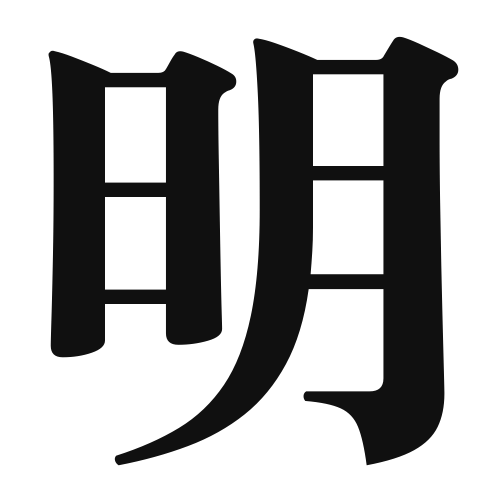1. Overview of Meaning
The kanji “明” (pronounced “mei” or “myou”) means “bright” or “clear.” It is often associated with light, clarity, and understanding.
2. Formation and Radical
Formation of the Kanji: The kanji “明” is a combination of two elements: the sun (日) and the moon (月). This combination symbolizes brightness and clarity, as both the sun and the moon provide light.
Radical: The radical of “明” is “日” (sun), which is often associated with light and brightness in various kanji.
3. Examples of Usage
Common Words and Phrases:
- 明るい (akarui) – bright
- 明日 (ashita) – tomorrow
- 明確 (meikaku) – clear, definite
Example Sentences in Daily Conversation:
- この部屋はとても明るいです。 (Kono heya wa totemo akarui desu.) – This room is very bright.
- 明日は友達と会います。 (Ashita wa tomodachi to aimasu.) – I will meet my friend tomorrow.
4. Synonyms and Antonyms
Similar Kanji:
- 輝 (ki) – shine, radiance (focuses more on the aspect of shining rather than clarity)
- 清 (sei) – clear, pure (emphasizes purity rather than brightness)
Antonyms:
- 暗 (an) – dark (the opposite of bright)
- 曖昧 (aimai) – vague, ambiguous (the opposite of clear)
5. Cultural and Historical Background
Relation to Japanese Culture: The concept of brightness and clarity is significant in Japanese culture, often symbolizing hope and positivity. The kanji “明” is used in various contexts, including names and expressions of good fortune.
Proverbs and Idioms:
- 明けない夜はない (Akenai yoru wa nai) – There is no night that does not end, meaning that difficult times will eventually pass.
- 明白 (meihaku) – obvious, clear, often used in legal or formal contexts.
